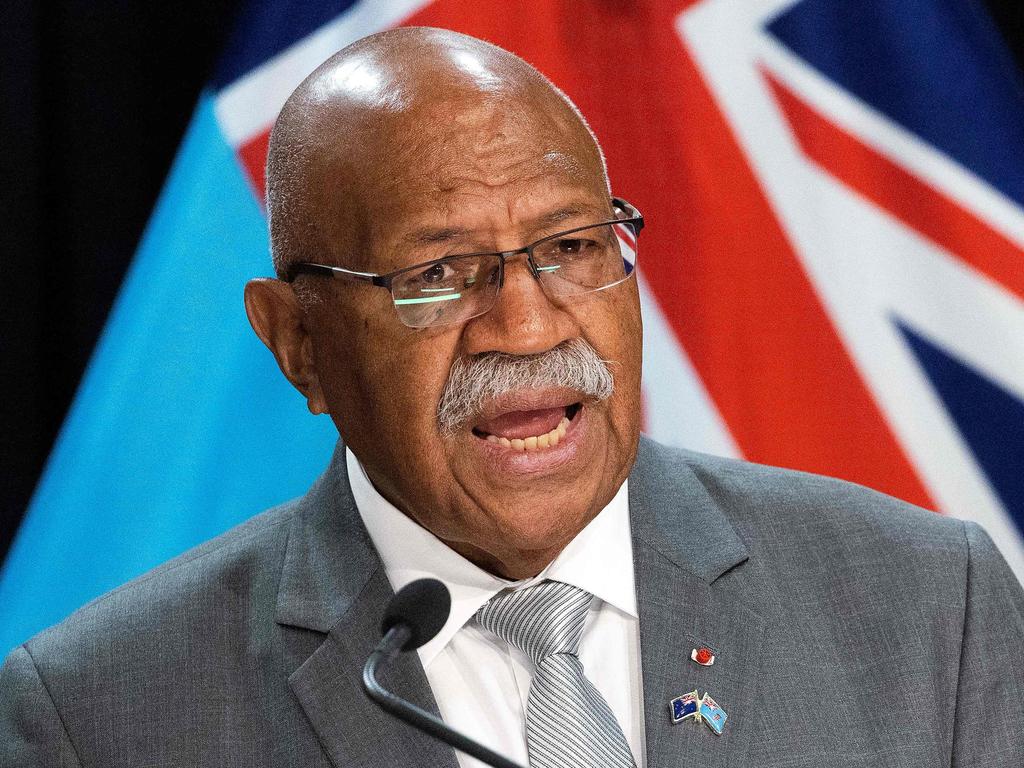Albanese stokes Bougainville tensions, amid new security pact with PNG
Australia has angered Bougainville while outplaying China in a new security pact with PNG.

Anthony Albanese has inflamed tensions over one of the region’s potential flashpoints – the future of Bougainville – as he signed a landmark new security agreement with Papua New Guinea.
The Australia-PNG pact sidelines China by prioritising security dialogue between Canberra and Port Moresby above other partners, and introducing an ANZUS-like guarantee to consult if either country is attacked.
The new agreement comes with a $200m law and order funding boost by Australia to invest in new PNG police infrastructure, including a new $110m police investigations training centre in Port Moresby.
But the diplomatic win was undermined when the Prime Minister, standing alongside his PNG counterpart James Marape, declared Bougainville’s independence aspirations were a matter for PNG alone.
“I’ll say very clearly … I respect PNG’s sovereignty and those issues are a matter for Papua New Guinea,” Mr Albanese said.
His comments, which followed an overwhelming 97.7 per cent independence vote by Bougainvilleans four years ago, prompted a swift reaction from the Autonomous Bougainville Government.
“Australia is supposedly the ‘Big Brother’ in the Pacific, but is a coward when it comes to the Bougainville independence issue,” ABG Attorney-General Ezekiel Massat told The Australian.
He said Australia was “deliberately avoiding” its obligations to hold PNG accountable, amid delays by the Marape government in tabling the referendum result in the nation’s parliament.
“Bougainville is not surprised at Australia’s endorsement of PNG’s games. They supplied the helicopters that (the PNG Defence Force) used to pick up our young revolutionary fighters and threw them out at sea, some dead, some still alive when thrown out,” Mr Massat said, referring to the 1988-98 Bougainville conflict.
Mr Marape said PNG and the autonomous region “have a handle on the peace agreement process”.
“We are on time, on schedule, to honour the 2001 peace process. The ratification process will take precedence,” he said.
The backlash on Bougainville comes as China looks to make inroads in the autonomous region, with promises to fund major infrastructure upgrades.
The new Australia-PNG pact follows China’s shock security pact with Solomon Islands, and its failed attempt to seal a region-wide security agreement.

Under the latest deal, Australia has agreed to fund the appointment of new judges, and the appointment of at least 50 Australian and Commonwealth police officers who will wear the uniform of the Royal Papua New Guinea Constabulary and answer to its chief commissioner.
PNG has pledged to nearly double the size of its police force from 5600 officers to 10,000, as it struggles to contain deadly tribal fighting, gender-based violence, and corruption. It is relying on Australia to help train the new officers and provide supporting infrastructure, including housing.
Mr Albanese, who invited Mr Marape to address Australia’s parliament in February, said the deal showed the countries’ mutual respect for each other’s sovereignty and territorial integrity.
“It will make it easier for Australia to help PNG address its internal security needs, and for Australia and Papua New Guinea to support each other’s security, and the region’s stability,” he said.
Mr Marape said the agreement benefited both countries, because PNG’s internal security “is in Australia’s interests as much as it is in PNG’s interest”.
The pact follows drawn-out negotiations between the countries to address concerns in Port Moresby that it could compromise PNG’s sovereignty, following domestic criticism of an earlier defence agreement with the US.
Mr Marape denied the pact violated PNG’s “friends to all, enemy to none” policy, saying the it would not preclude security agreements with other countries.
“There is no exclusivity. Australia has given us respect to our relationships elsewhere,” he said.
But the text of the agreement confirms the PNG-Australia security relationship will stand above other such relationships, saying the parties “shall prioritise consultations with each other”.
Like Australia’s ANZUS treaty with the US, it includes a requirement for the countries to “consult” in the event of an armed attack on either country.
Both leaders insisted the agreement would be legally binding, despite it being downgraded from treaty status.
Mr Albanese’s stumble on the Bougainville issue followed a similar blunder last year by Deputy Prime Minister Richard Marles, who declared: “Our job is to support Papua New Guinea in the decisions that it makes.”
He quickly backtracked after Bougainville President Ishmael Toroama accused him of issuing “veiled threats” and engaging in “intimidation”.
“There has been no change to our longstanding policy on Bougainville,” Mr Marles said. “Australia’s role is to support the peace process and decisions around future arrangements which the parties have to negotiate.”







To join the conversation, please log in. Don't have an account? Register
Join the conversation, you are commenting as Logout